This course aims at expanding our ability to interact with and to understand all of the complexities and nuances of the moving image. No matter its delivery system, the orchestration of image, sound and time constitutes, as one critic has put it, “a natural counterbalance to language as a way of accounting for the world.” With grounding in the formal qualities of cinema, we will explore the aesthetic and cultural ramifications of its transformation in the second half of the 20th century, and into the 21st. Professor: Ken Eisenstein. Screenings are free and open to the public.
Monday, August 24 at 7pm
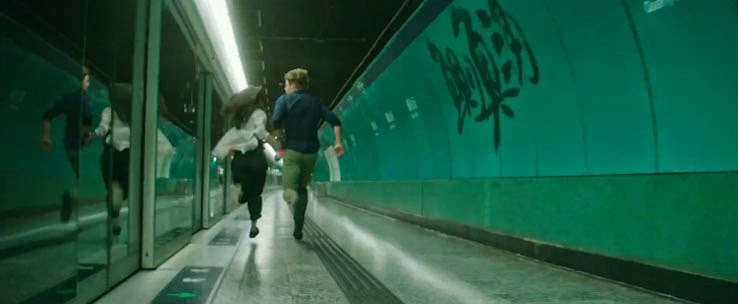
BLACKHAT
Michael Mann (U.S. 2015) 133 min. DCP. With Chris Hemsworth, Viola Davis, Wei Tang, Leehom Wang.“Blackhat isn’t a failed action movie – it’s a big-budget avant-garde film” ran the headline of a Chicago Reader review last January. Don’t let either part of that statement (neither is true) keep you from your chance to catch Michael Mann (Manhunter 1986) transforming brick and mortar cities into circuitry, and glossy magazines into body armor, in this 21st century meditation on presence vs. remote access.
Monday, August 31 at 7pm
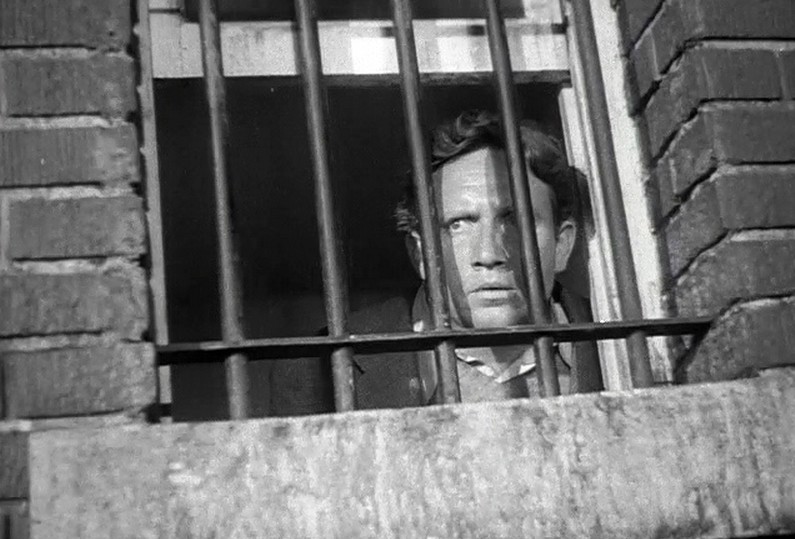
FURY
Fritz Lang (U.S. 1936) 92 min. 35MM. With Spencer Tracy, Sylvia Sidney, Walter Brennan.
Paranoia and violence permeate Lang’s American debut. After fleeing Germany, the extraordinary director applied his Expressionistic, proto-noir visual style to a waking nightmare: Spencer Tracy, a stranger in a small town, is charged with a crime and hunted by a mob to his presumed death – a hidden vantage point from which he follows the trial of the town’s citizens for his murder.
TOP OF PAGE
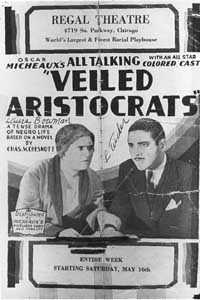
Monday, September 7 at 7pm
Veiled Aristrocrats
Oscar Micheaux (U.S. 1932) Approx 48 min. 35MM. With Lorenzo Tucker, Walter Fleming, Lucille Lewis.
In his adaptation of Charles Chesnutt’s novel The House Behind the Cedars (1900), Micheaux treats familiar and controversial subjects found throughout his extant body of work: the effects of skin color on relationships between blacks, and racial “passing.” A young man, sent as a child to a Northern city for his education, returns home with the intention of taking his light-skinned sister back North and finds she is in love with a dark-skinned man. George Eastman House Preservation Print.
Playing with
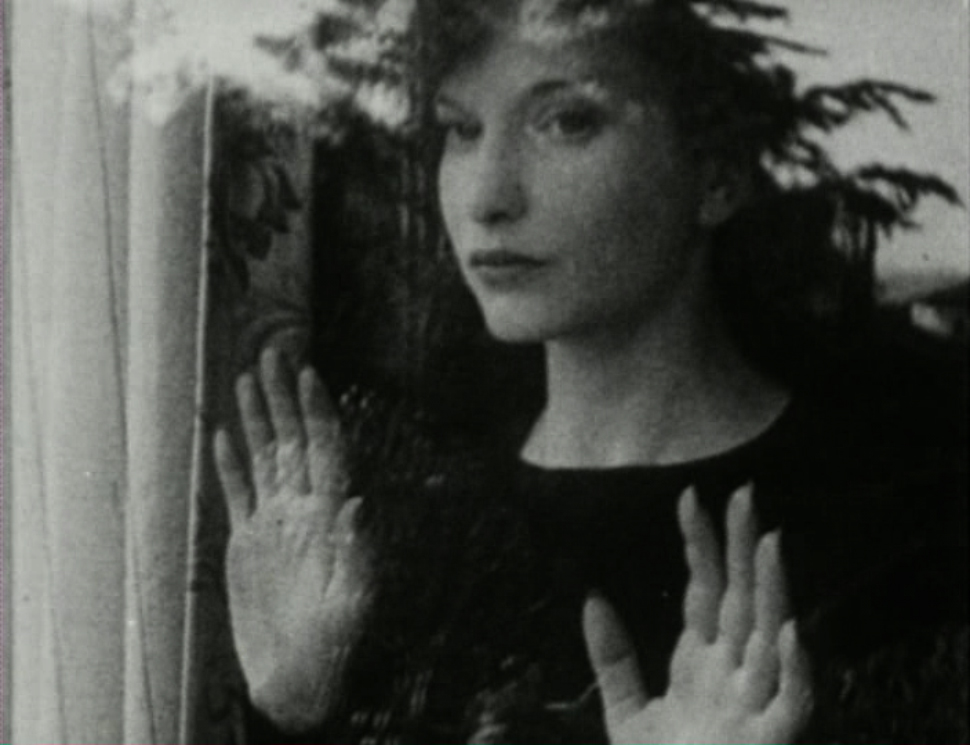
MESHES OF THE AFTERNOON
Maya Deren (U.S. 1943) 14 min. 16MM. With Maya Deren, Alexander Hammid.
One of the most influential works in American experimental cinema, Deren’s dreamlike web of a film features recurring symbolic objects (a knife, a key, a mirror), unforgettably thrilling cinematography and an equally haunting score by Deren’s third husband, composer Teiji Ito.
Monday, September 14 at 7pm
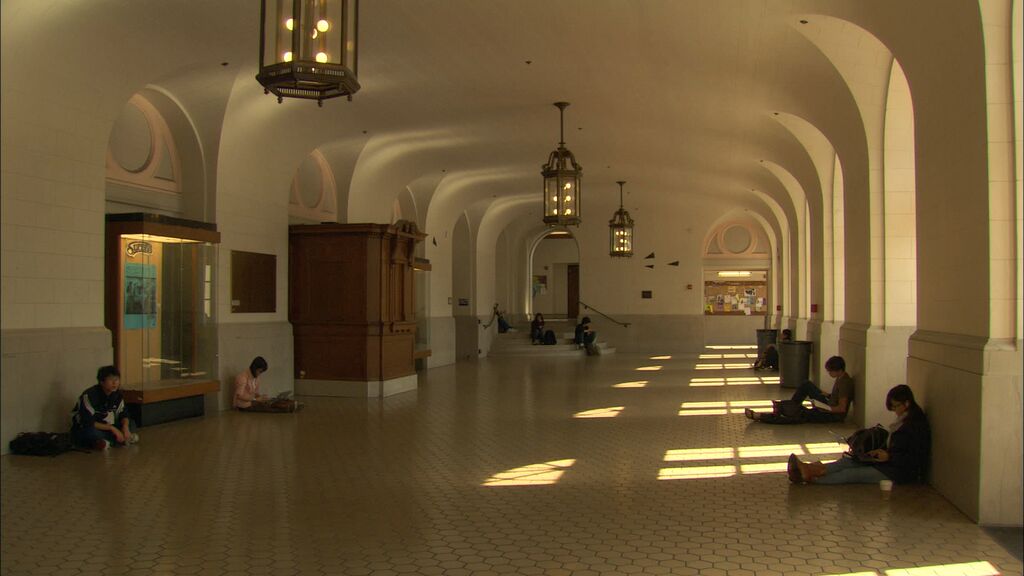
AT BERKELEY
Frederick Wiseman (U.S. 2013) 244 min. DCP.
The University of California at Berkeley is both the oldest member of a ten campus public education system and one of the most prestigious research and teaching facilities in the world. Wiseman’s portrait uses the settings of Berkeley university life (the meetings, classes and protests) to study the institution’s intellectual and social mission, and how decisions are made and implemented by the administration in collaboration with its constituencies – each distinguished by specific obligations to the state and to larger ideas of higher education.
TOP OF PAGE
Monday, September 21 at 7pm
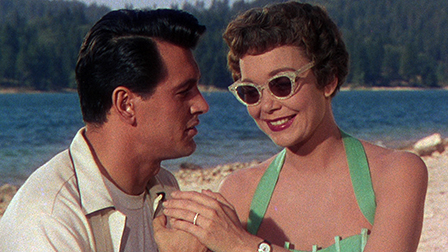
MAGNIFICENT OBSESSION
Douglas Sirk (U.S. 1954) 108 min. 35MM. With Jane Wyman, Rock Hudson, Agnes Moorehead.
A philanthropist doctor’s death and the subsequent blinding of his grieving widow are both indirectly caused by the recklessness of Rock Hudson’s spoiled millionaire in Sirk’s uber-melodrama, lusciously told in saturated Technicolor and expressive mise-en-scène. Driven by guilt, the playboy turned eminent surgeon courts Wyman, whose blindness he aims to cure.
TOP OF PAGE
Monday, September 28 at 7pm

SOUTH (SUD)
Chantal Akerman (France 1999) 70 min.
Inspired by her love of William Faulkner and James Baldwin, renowned director Chantal Akerman had planned to produce a meditation on the American South. Days before she was to begin filming, James Byrd, Jr., a black family man, was severely beaten and murdered by three white men in Jasper, Texas. South addresses the racially motivated killing via tracking shots through Jasper’s black neighborhoods, interviews with townspeople and a sobering ride down the long road on which Byrd was brutally dragged, chained to the back of a truck until pieces of his body were left scattered in the landscape.
OCTOBER AKA TEN DAYS THAT SHOOK THE WORLD
Sergei Eisenstein (U.S.S.R 1928) 95 min. DCP. With Vasily Nikandrov, N. Popov, Boris Livanov.
Commissioned by the Communist Party to celebrate the 10th anniversary of the October Revolution, October recalls events in St. Petersburg from February-November 1917. Thereafter the film had a troubled political history – it was disappeared from cinemas after its premiere on March 14, 1928. Fortunately, October survived: the purest example of what Eisenstein termed intellectual montage – a work whose force and provocative meaning are generated via cinema, in the mind of the viewer. Co-sponsored by the Music Department. Presented in the recent Munich Film Museum reconstruction, with the rediscovered and once controversial original score by groundbreaking composer Edmund Meisel.
TOP OF PAGE
Monday, October 19 at 7pm
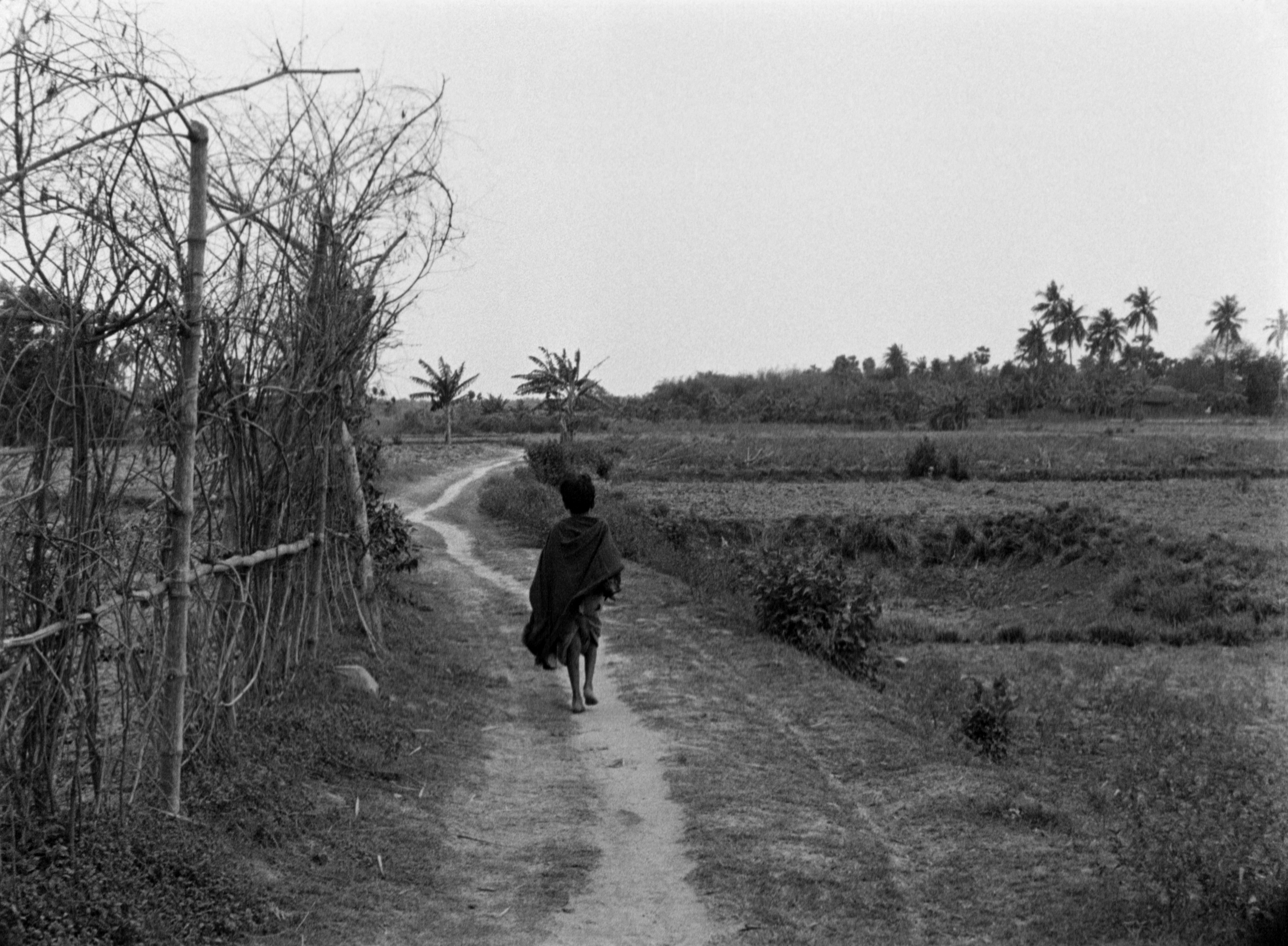
PATHER PANCHALI/SONG OF THE LITTLE ROAD
Satyajit Ray (India 1955) 125 min. DCP. With Subir Banerjee, Uma Das Gupta, Kanu Banerjee. Bengali with English subtitles.
Satyajit Ray’s debut is the first film in a trilogy that introduced the world to an eloquent new cinematic voice. Based on two books by Bibhutibhusan Banerjee and comprising the most richly humane movies ever made, these essential works depict rural Bengali life via a naturalistic but poetic evocation of several years in the life of a family. Pather Panchali follows both free-spirited Apu as a young boy and the women who will help shape him: his independent older sister, his harried mother, and his mischievous elderly “auntie.“ Two decades after its original negatives were burned in a fire, Ray’s breathtaking milestone of world cinema has risen from the ashes in a meticulously reconstructed new 4K restoration thanks to Janus Films and the Criterion Collection in collaboration with the Academy Film Archive at the Academy of Motion Picture Arts and Sciences.
Monday, October 26 at 7pm
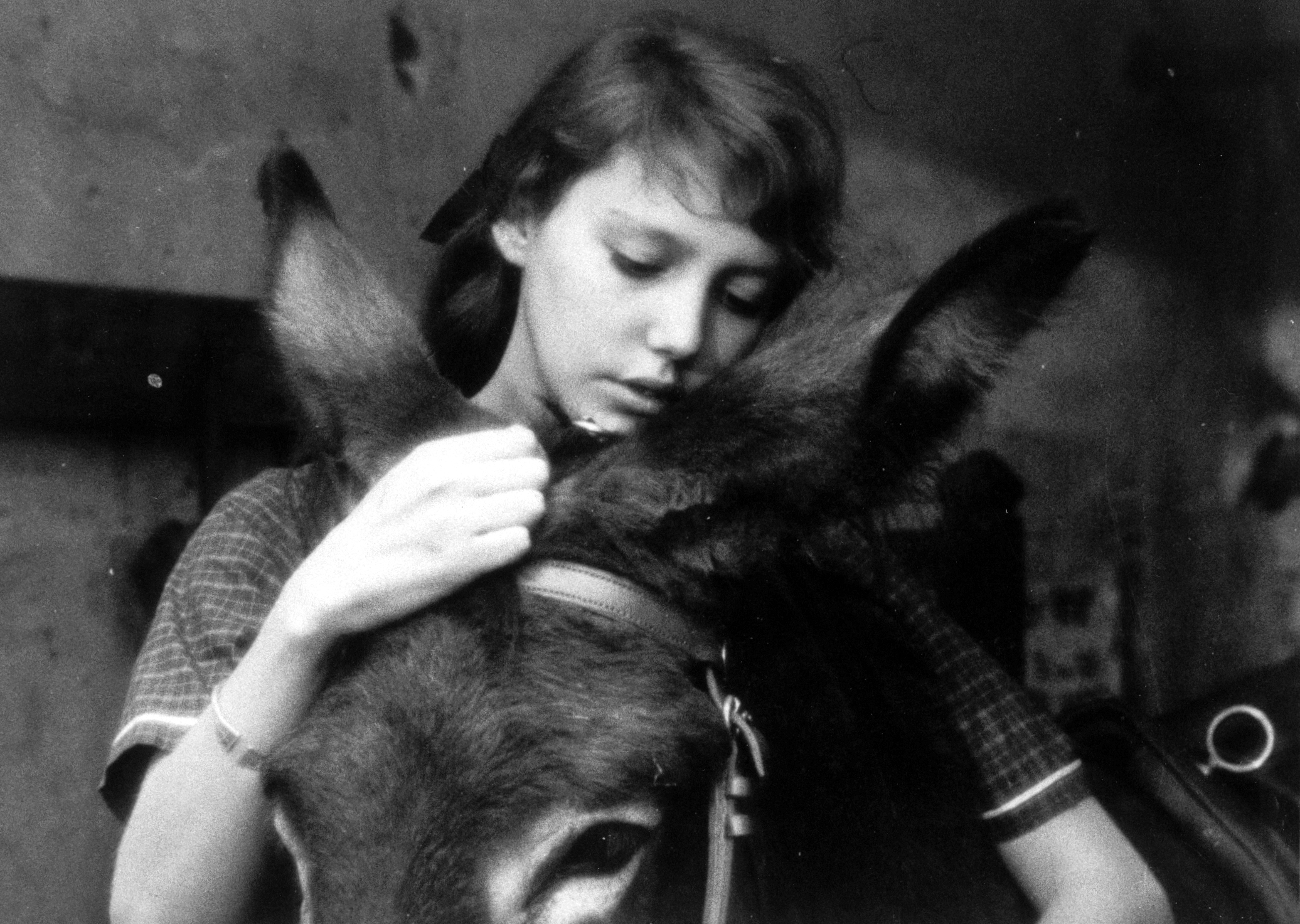
AU HASARD BALTHAZAR
Robert Bresson (France 1966) 95 min. 35MM. With Anne Wiazemsky, François Lafarge, Walter Green. French with English subtitles.
A supreme masterpiece from one of the most revered filmmakers in the history of cinema, Bresson’s Au hasard Balthazar is a religious allegory that follows the donkey Balthazar as he is passed from owner to owner, some kind and some cruel, but all with motivations beyond his understanding. Balthazar, whose life parallels that of his first keeper, Marie, is a beast of burden, suffering the sins of man but accepting his fate nobly, despite his powerlessness. Through Bresson’s unconventional approach to composition, sound, and narrative, this seemingly simple story becomes a moving parable of purity and transcendence.
Monday, November 2 at 7pm
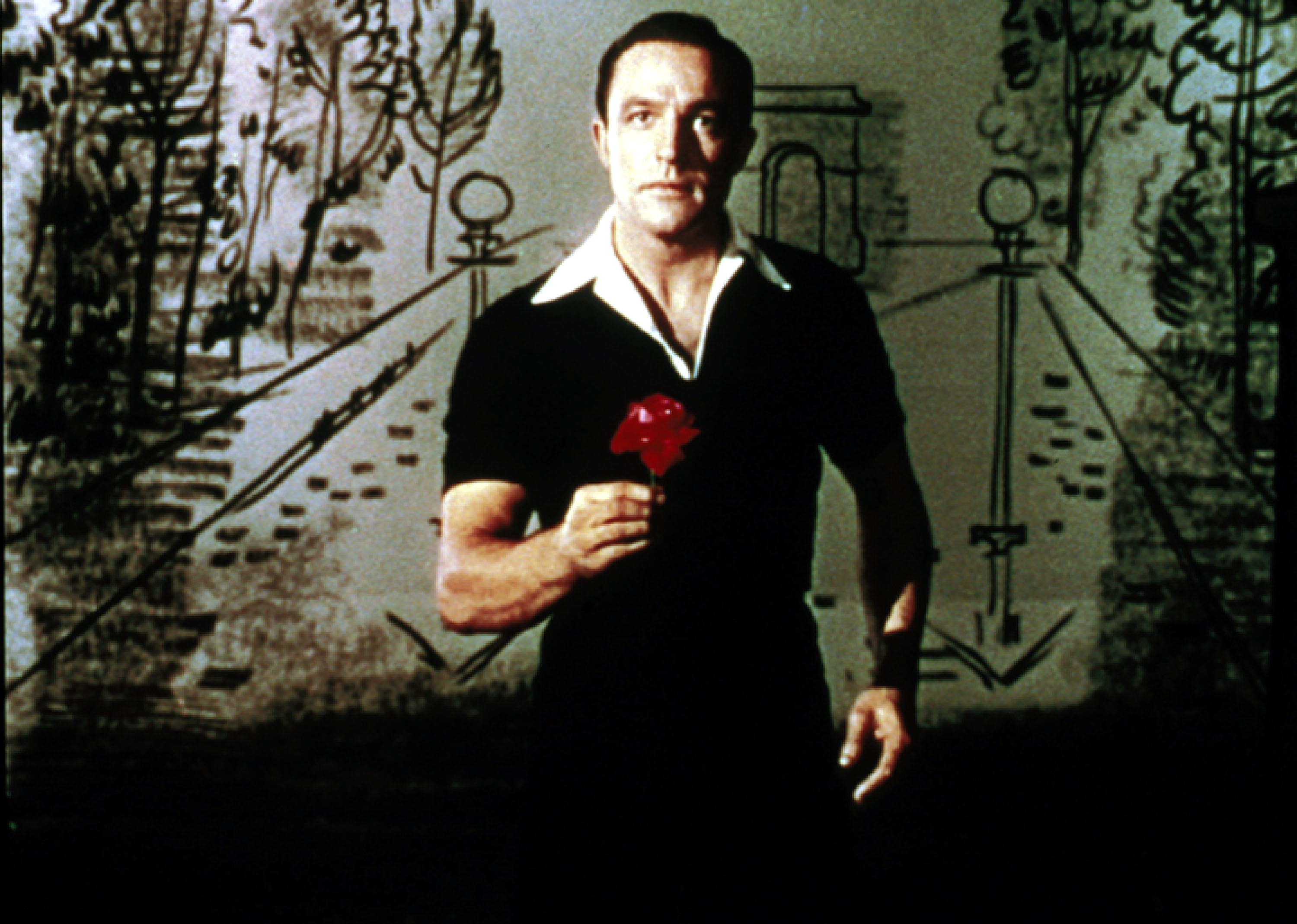
AN AMERICAN IN PARIS
Vincente Minnelli (U.S. 1951) 113 min. 35MM. With Gene Kelly, Leslie Caron, Oscar Levant.
Gene Kelly is the titular American abroad, a WWII vet and struggling painter who sings and soft-shoes his way through Minnelli’s masterpiece about love and longing in the city of lights, all in brilliant Technicolor! The Gershwin score (I Got Rhythm) and the Kelly-Caron dance chemistry culminates in a spectacular fantasy ballet finale that remains a classic of the golden age of movie musicals.
An American in Paris excels “in its exuberant celebration of technology and aesthetics. Minnelli and company pulled out all the stops, with split screens, process shots, and a roborant color scheme. The gaudy, indulgent 17-minute ballet that concludes the film still has the power to inebriate all these CGI-riddled years later. As Gershwin transitions from car horns to a wailing trumpet to gliding strings, Kelly and Caron play cat and mouse among sets inspired by painters inspired by Paris, including Dufy, Renoir, Utrillo, Rousseau, Van Gogh, and Toulouse-Lautrec. Perhaps An American in Paris was the upset Best Picture Oscar winner because of the ballet. With its merging of high and middlebrow art, it was cinematically progressive in ways that front-runners A Place in the Sun and A Streetcar Named Desire weren’t. Academy voters may have seen in An American in Paris the future of movies.” – Matthew Kennedy, Bright Lights Film Journal
Monday, November 9 at 7pm
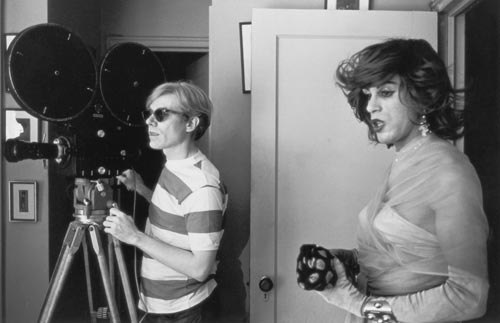
ARI AND MARIO
Andy Warhol (U.S. 1966) 66 min. 16MM. With Nico, Mario Montez, and Ari Boulogne.
Playing with
SUNSET
Andy Warhol (U.S. 1967) 33 min. 16MM.
Two disparate, seemingly ordinary subjects receive the Warhol treatment in this 16mm program. Life isn’t easy even for a cultural icon; Nico (of the Velvet Underground) is frantic to find a last-minute babysitter for her son, Ari. When she calls in a favor from drag queen and fellow Factory Superstar Mario Montez, antics ensue as the two vie for attention and authority. The comic drama between the odd couple transforms a would-be banal subject into one of the sweetest and most charming of Warhol’s works. Sunset is rooted in the artist-director’s earlier work on repetition and slow, sustained images. Excised from footage from an abandoned religious project, Sunset is exactly what the title claims: a half hour sequence of the sun setting in California. As with earlier long-form object-observation features like Empire (1964), a quotidian event is elevated to a meditative, aesthetic experience via Warhol’s gaze.
Monday, November 16 at 7pm
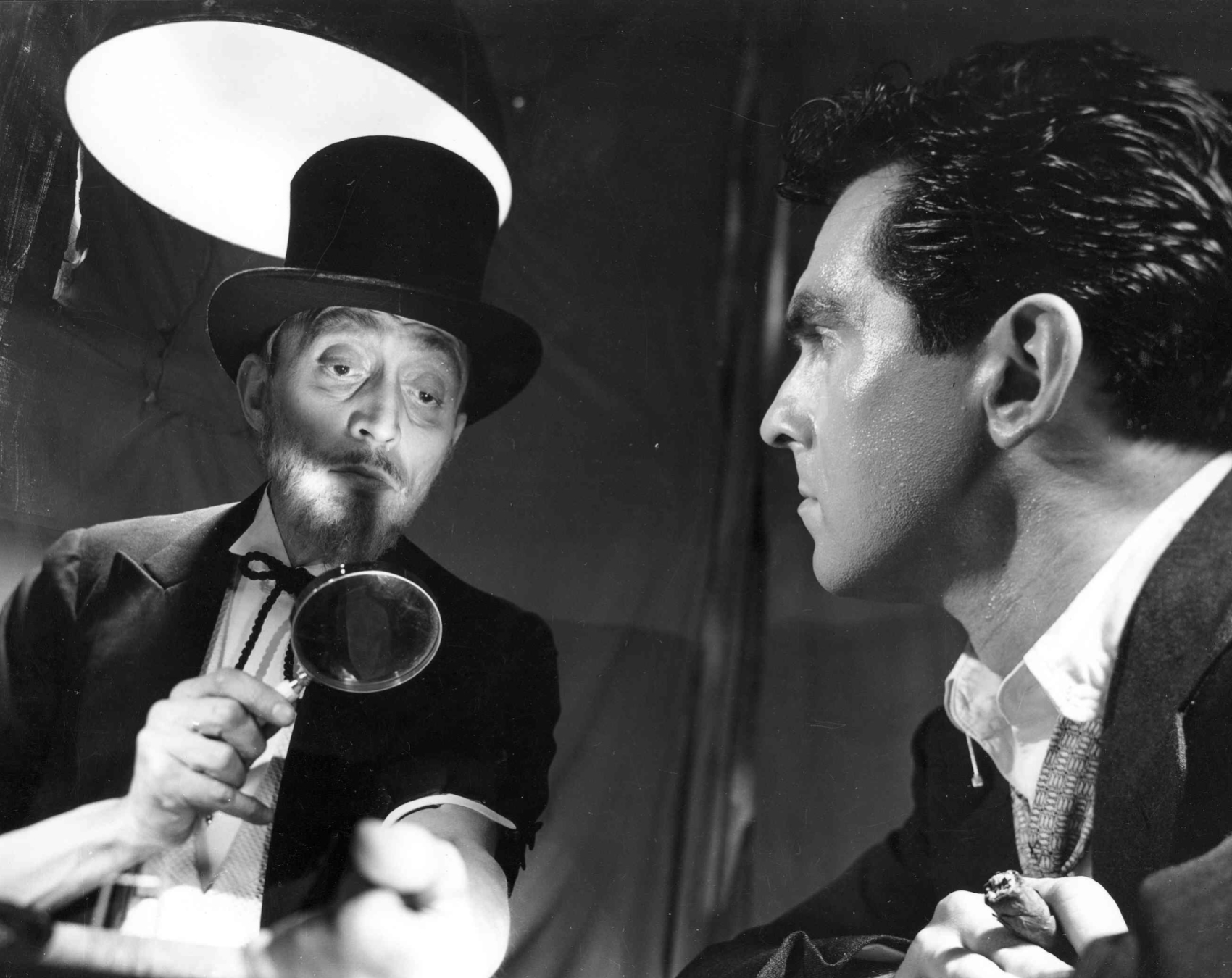
MR. ARKADIN
Orson Welles (France/Spain/Switzerland 1955) 93 min. 35MM. With Orson Welles, Robert Arden, Paola Mori.
Wellesian themes of memory’s subjectivity and plurality – the crux of Citizen Kane’s search for Rosebud – are at play again in this powerful and famously troubled film (the film’s producer took control of the footage from Welles during the editing of the film, and there are at least eight Mr. Arkadin’s out in the world: three radio plays, a novel, several long-lost cuts, and the controversial European release known as Confidential Report). With his dying breath, a murder victim whispers the name “Arkadin” to Guy Van Stratten (Arden) and the mystery intensifies after Van Stratten manages to meet Arkadin (Welles) – who then hires him to travel far and wide to piece together the amnesiac millionaire’s past. Shot in stunning locales across Europe, Mr. Arkadin is a labyrinthian story of secret selves and histories in keeping with the genius’ oeuvre and obsessions.
Monday, November 30 at 7pm
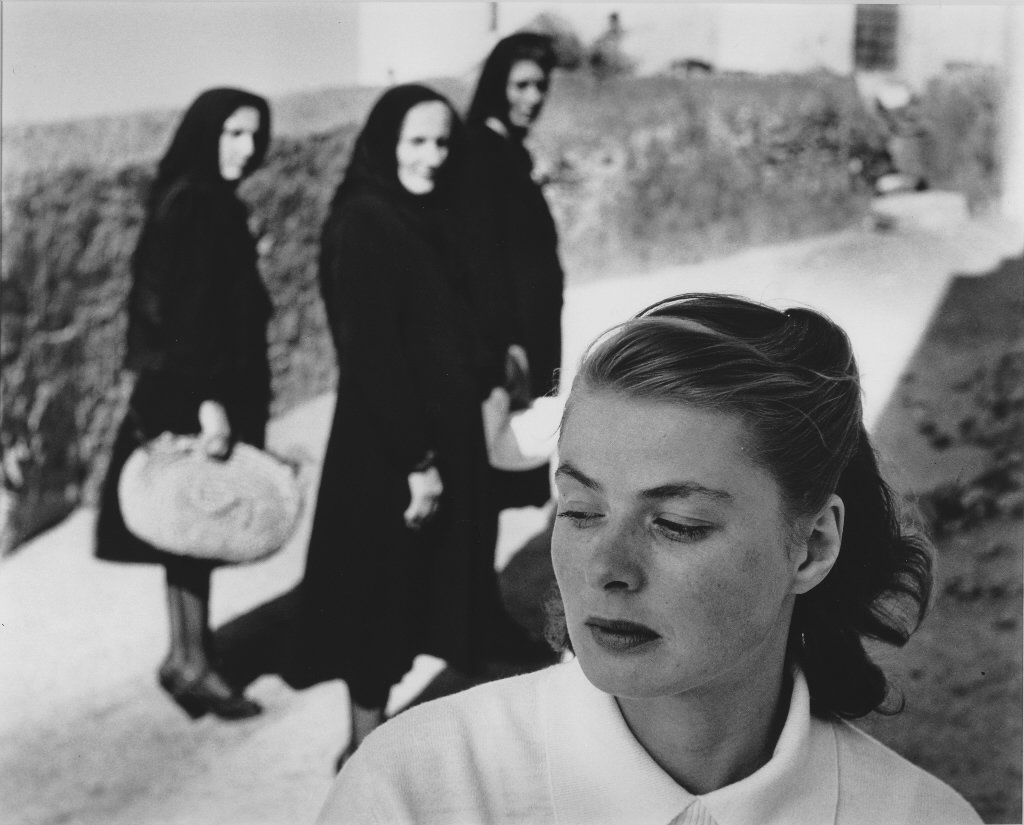
STROMBOLI
Roberto Rossellini (Italy 1950) 106 min. DCP. With Ingrid Bergman, Mario Vitale, Renzo Cesana.
The first collaboration between Roberto Rossellini and Ingrid Bergman is a devastating portrait of a woman’s existential crisis, set against the beautiful and forbidding backdrop of a volcanic island. After World War II, a Lithuanian refugee (Bergman) marries a simple Italian fisherman (Vitale) whom she meets in a prisoner of war camp and accompanies him back to his isolated village on an island off the coast of Sicily. Cut off from the world, she finds herself crumbling emotionally, yet she is destined for a dramatic epiphany. Balancing the director’s trademark neorealism—exemplified here in a remarkable depiction of the fishermen’s lives and work—with deeply felt melodrama, Stromboli is a revelation.
Monday, December 7 at 7pm
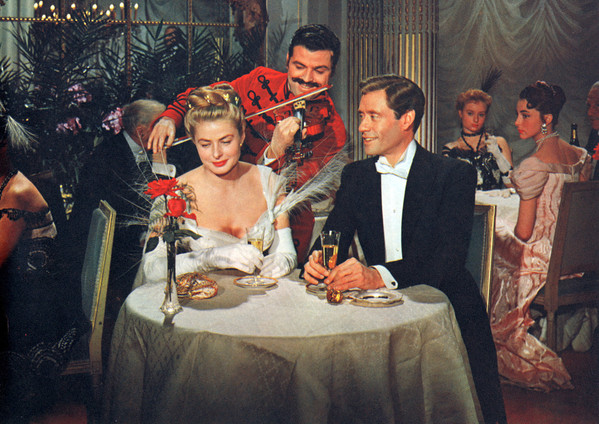
ELENA AND HER MEN
Jean Renoir (U.S. 1956) 95 min. 35MM. With Ingrid Bergman, Jean Marais, Mel Ferrer.
Set amid the military maneuvers and Quatorze Juillet carnivals of turn-of-the-century France, Renoir’s delirious romantic comedy stars a radiant Ingrid Bergman as a beautiful but impoverished Polish princess who drives men of all stations to fits of desperate love. When Elena elicits the fascination of a famous general, she finds herself at the center of romantic machinations and political scheming, with the hearts of several men—as well as the future of France—in her hands.
